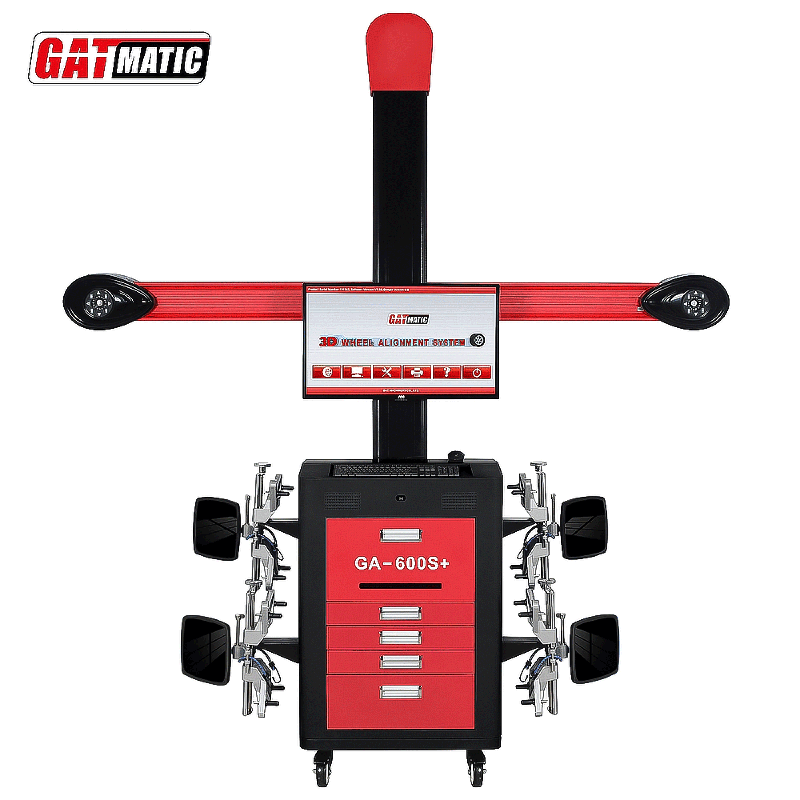Will misalignment affect my fuel efficiency?
I. Introduction
Wheel alignment is a critical aspect of vehicle maintenance that ensures the wheels are set to the optimal angle relative to the road and each other. Proper alignment is essential for safe and efficient vehicle operation, affecting not only handling and tire wear but also fuel efficiency. Fuel efficiency, or the distance a vehicle can travel per unit of fuel consumed, is a significant concern for vehicle owners, particularly in an era of rising fuel costs and environmental awareness. This essay explores how misalignment impacts fuel efficiency, the associated consequences, and the benefits of maintaining proper wheel alignment.
II. Impact of Misalignment on Fuel Efficiency
Misalignment can have a profound effect on a vehicle’s fuel efficiency. One of the primary ways this occurs is through increased rolling resistance. When wheels are misaligned, they do not roll in a straight line, which causes additional friction between the tires and the road surface. This increased rolling resistance requires more energy—hence more fuel—to maintain speed.In addition to rolling resistance, misalignment creates additional drag and friction. Misaligned tires tend to scrub against the road rather than roll smoothly, which not only increases wear on the tires but also leads to higher fuel consumption. The engine must work harder to overcome this added resistance, further contributing to decreased fuel efficiency.Moreover, when wheels are misaligned, they can cause the engine to exert more effort to maintain speed. This increased workload translates directly into higher fuel usage, as the engine burns more fuel to compensate for the inefficiencies introduced by misalignment.
III. Quantifying the Effects
Research indicates that improper wheel alignment can reduce fuel efficiency by as much as 10%. This statistic underscores the importance of regular alignment checks for vehicle owners who wish to optimize their fuel economy. For example, if a driver typically spends $2,000 annually on fuel, a 10% decrease in efficiency could result in an extra $200 spent on gasoline each year due to misalignment.The cost implications extend beyond just fuel expenses; they also encompass potential savings from proper alignment. Regularly maintaining wheel alignment can lead to significant savings over time, making it a wise investment for any vehicle owner.
IV. Related Consequences of Misalignment
The effects of misalignment are not limited solely to fuel efficiency; they also lead to several related consequences that can impact overall vehicle performance and safety. One major issue is uneven tire wear. Misaligned wheels often cause certain areas of the tires to wear down more quickly than others, leading to premature tire replacement and additional costs.Furthermore, misalignment negatively affects vehicle handling and safety. A vehicle with misaligned wheels may pull to one side or feel unstable during driving, making it difficult for the driver to maintain control. This compromised handling can increase the risk of accidents.Neglecting alignment issues can also lead to increased repair costs in other areas of the vehicle’s suspension system. Over time, components may become damaged due to the stress caused by misalignment, leading to costly repairs that could have been avoided with regular maintenance.
V. Benefits of Proper Wheel Alignment
Maintaining proper wheel alignment offers numerous benefits that extend beyond just improved fuel efficiency. One of the most significant advantages is enhanced fuel economy; by reducing rolling resistance and drag, properly aligned wheels allow vehicles to operate more efficiently.In addition to improved fuel efficiency, proper alignment contributes to a smoother driving experience. Vehicles with well-aligned wheels handle better and provide greater comfort for passengers. This improved handling can make driving less stressful and more enjoyable.Another benefit is longer tire life. Proper alignment promotes even tire wear, extending the lifespan of tires and reducing replacement frequency. This not only saves money but also contributes to environmental sustainability by reducing waste from discarded tires.
VI. Conclusion
In conclusion, regular wheel alignment checks are essential for maintaining optimal fuel efficiency and overall vehicle performance. Misalignment can significantly decrease fuel economy by increasing rolling resistance and engine workload while also leading to uneven tire wear and compromised handling. By investing in proper wheel alignment maintenance, vehicle owners can enjoy improved fuel efficiency, enhanced driving comfort, and longer-lasting tires—all contributing to substantial cost savings over time. Prioritizing wheel alignment not only benefits individual drivers but also promotes safer roads and a healthier environment.
FAQs
1. How does wheel misalignment affect fuel efficiency?
Misalignment increases rolling resistance, which forces the engine to work harder to maintain speed, resulting in higher fuel consumption. Proper alignment allows the vehicle to move more efficiently, conserving fuel and improving mileage
2. Can misaligned wheels decrease gas mileage significantly?
Yes, misalignment can decrease gas mileage by up to 10%. This means that if your tires are not aligned properly, you could be spending substantially more on fuel
3. What are the signs of misalignment?
Common signs of misalignment include uneven tire wear, the vehicle pulling to one side while driving, and a steering wheel that is off-center when driving straight. These issues can lead to decreased fuel efficiency and should be addressed promptly
4. How often should I check my wheel alignment?
It is recommended to check your wheel alignment every 6,000 miles or whenever you notice signs of misalignment. Regular checks can help maintain optimal fuel efficiency and extend tire life
5. Will a wheel alignment improve my car’s handling?
Absolutely. Proper alignment enhances vehicle stability and steering response, leading to a smoother driving experience and better overall performance
6. Can I perform a wheel alignment myself?
While some basic checks can be done at home, proper wheel alignment requires specialized equipment and expertise. It is best performed by a professional mechanic to ensure accuracy and safety
7. What other benefits come from maintaining proper wheel alignment?
In addition to improved fuel efficiency, proper alignment reduces tire wear, enhances vehicle handling, and can prevent costly repairs related to suspension damage caused by misalignment
Describe Your Needs In Detail!
We will carefully evaluate your needs and give professional solutions.



